News
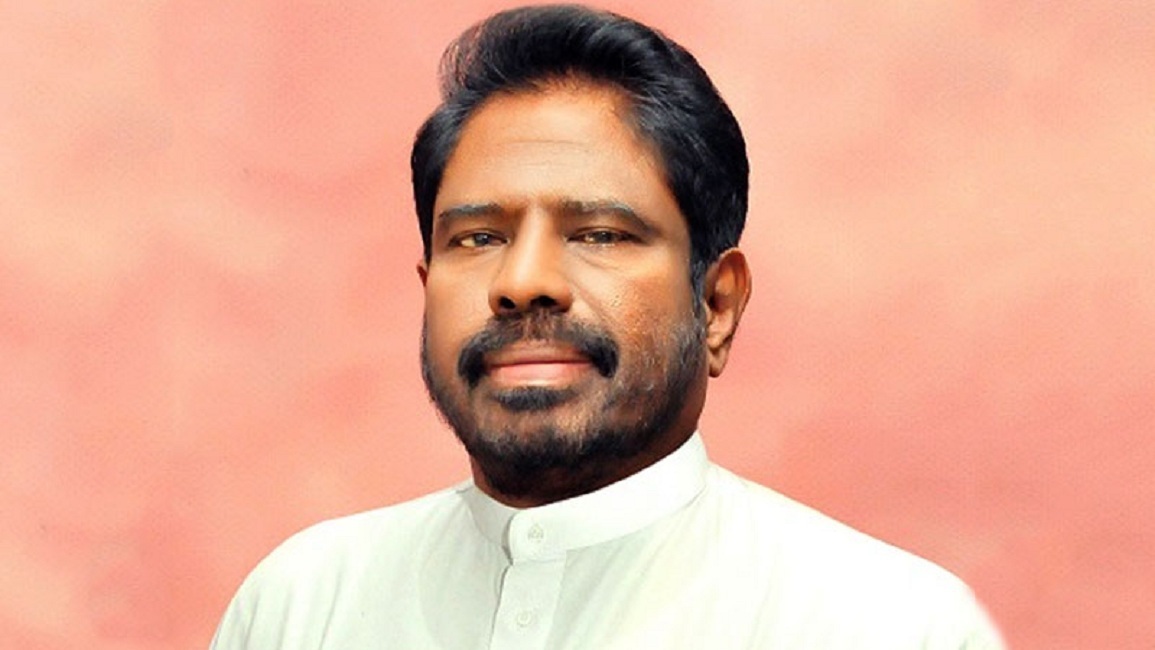
Four SLFP MPs crossover to the UNF government
SLFP Parliamentarians Vijith Vijithamuni Soysa, Lakshman Seneviratne, Piyasena Gamage and Indika Banadaranayake have crossed over to the government when parliament convened today (18).
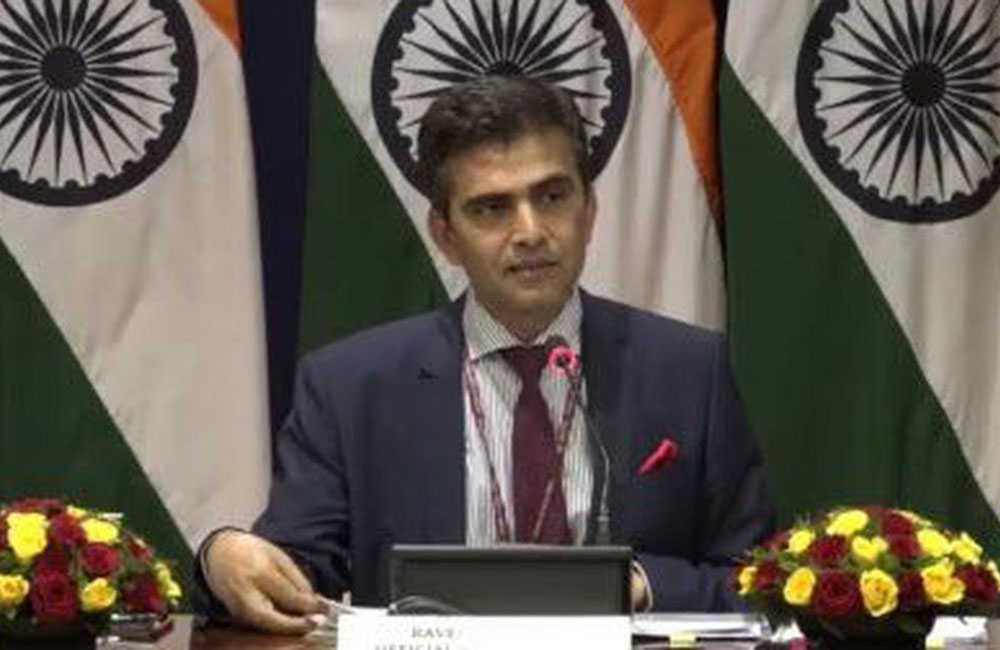
India welcomes the end of Lankan political coup
India welcomes the end of the political crisis in Sri Lanka, India's Foreign Ministry spokesman Raveesh Kumar said today (17), noting that such a result demonstrates the political maturity of the main forces and institutions of the country.
"As a neighbor and sincere friend, India welcomes the resolution of the current political situation in Sri Lanka. That outcome is a reflection of the maturity of all political forces, as well as the strength of the Sri Lankan democracy and its institutions. India intends to further develop its people-centered projects in Sri Lanka. We are sure that the relations between two countries will continue on that upward trajectory," Kumar told journalists.
On Sunday, Ranil Wickremesinghe was sworn in as the head of the country's government once again following the resignation of Mahinda Rajapaksa, who announced that he stepped down from the post the day before.
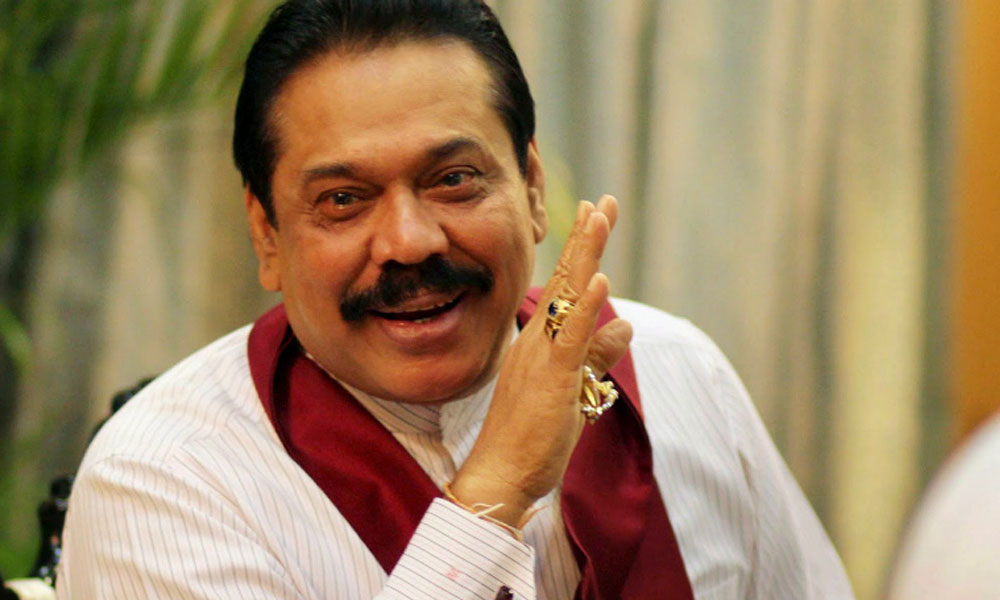
Mahinda nominated to be Leader of Opposition
The United People’s Freedom Alliance (UPFA) has decided to nominate former President Mahinda Rajapaksa to be the Leader of the Opposition. The decision was taken at the UPFA parliamentary group meeting held today (18), that was chaired by president Maithripala Sirisena. .
When parliamentary proceedings began, Speaker Karu Jayasuriya said that he would recognise Rajapaksa as the leader of the opposition. However, raising objections, TNA MP M.A. Sumanthiran said that the parliament should be allowed to investigate the suitability of the former president to function as the leader of the opposition since questions have been raised regarding his eligibility to continue as a member of parliament as he has joined the Sri Lanka Podujana Peramuna (SLPP).
SLMC leader Rauf Hakeem also noted that Rajapaksa has ceased to become a MP. Hakeem said that Rajapaksa had contested from the UPFA at the last general election but had resigned from the party and joined SLPP and therefore his seated has been vacated.
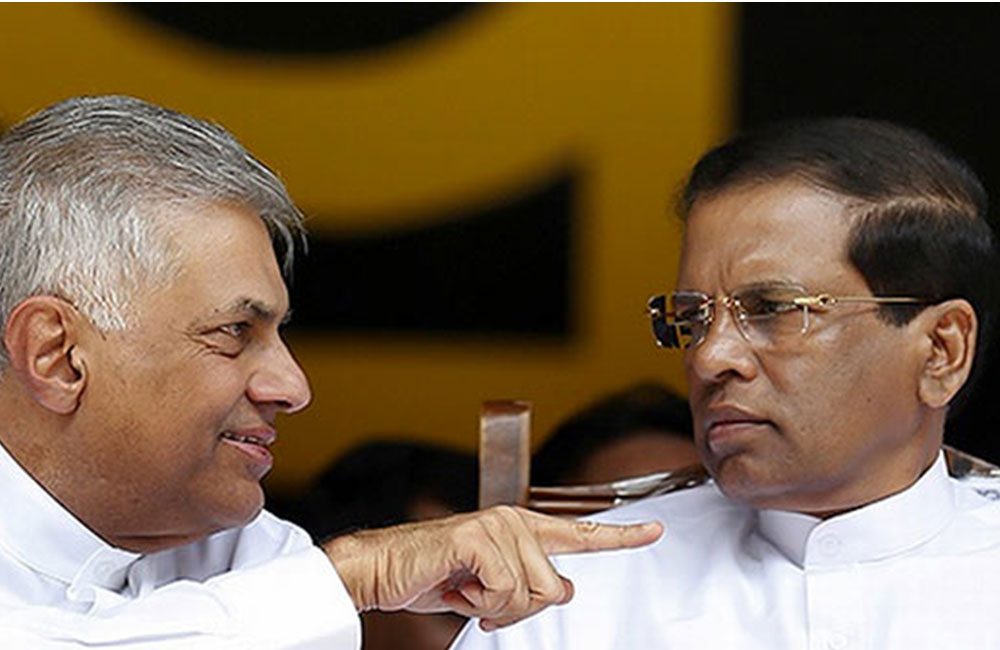
Sirisena casts doubt on working with reinstated prime minister
Sri Lanka’s president has accused newly reappointed Prime Minister Ranil Wickremesinghe of corrupt leadership in a scathing speech.
President Maithripala Sirisena, who administered the oath that returned Mr Wickremesinghe to office, voiced doubts about their ability to work together and signalled the two-month political crisis is far from resolved.
He told the prime minister and a group of his politicians that he cannot find people of honesty and integrity to help him take the country forward.
“With the issues we have, I am not sure what guarantees we have that we could go on this journey together,” Mr Sirisena told Mr Wickremesinghe.
Mr Sirisena abruptly dismissed Mr Wickremesinghe on October 26 and appointed former president Mahinda Rajapaksa in his place, with Mr Wickremesinghe insisting his removal was unlawful.
But Mr Rajapaksa continued to hold office with Mr Sirisena’s support, and his opponents went to court.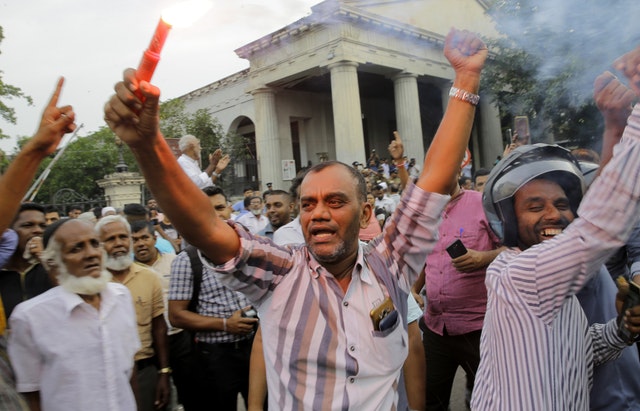
Supporters of ousted Sri Lankan Prime Minister Ranil Wickremesinghe celebrate outside the supreme court complex in Colombo (Eranga Jayawardena/AP)
The Court of Appeal suspended Mr Rajapaksa and his cabinet from functioning in their offices.
Mr Rajapaksa asked the Supreme Court to lift the suspension, but it refused and extended the suspension until mid-January, forcing Mr Rajapaksa to resign on Saturday.
Sri Lanka had been without a government from the time Mr Rajapaksa was suspended by the Court of Appeal and was facing the danger of being unable to spend government money from January 1 without a budget.
The swearing in of Mr Wickremesinghe took place privately, with only a few politicians in attendance and media not permitted.
It initially indicated an end to the impasse, but Mr Sirisena’s speech is a sign of more acrimony, possibly leading to early parliamentary elections.
Mr Wickremesinghe spoke separately at his official residence and refrained from responding to the president.
“Now I will assume duties of the office of prime minister,” he told his cheering supporters.
“Unfortunately, during the past few weeks, the progress of this country and the development programs that we undertook were stalled,” he said. “Not only that, the country went backward. Today we commit firstly to bring back normalcy and resuming the development program.”
In a televised speech, Mr Sirisena said his reasons for firing Mr Wickremesinghe included a lack of interest in helping investigate an alleged insider trade during a bond issue, in which a former Central Bank governor who is a close friend of Mr Wickremesinghe is implicated.
He also said Mr Wickremesinghe’s ministers alienated Buddhist monks by having them arrested for keeping unlicensed captive elephants at temples.
Sri Lanka is a predominantly Buddhist nation with an influential clergy.
Mr Sirisena also criticised Mr Wickremesinghe for investigations into alleged abuses during the long civil war that ended in 2009. The president said Mr Wickremesinghe had only government soldiers arrested but had not looked into prosecuting former Tamil Tiger rebels he said were hiding in foreign countries.
“My view is that we should prosecute everyone, or else we should negotiate with the international community and free our soldiers (from accusations),” he said.
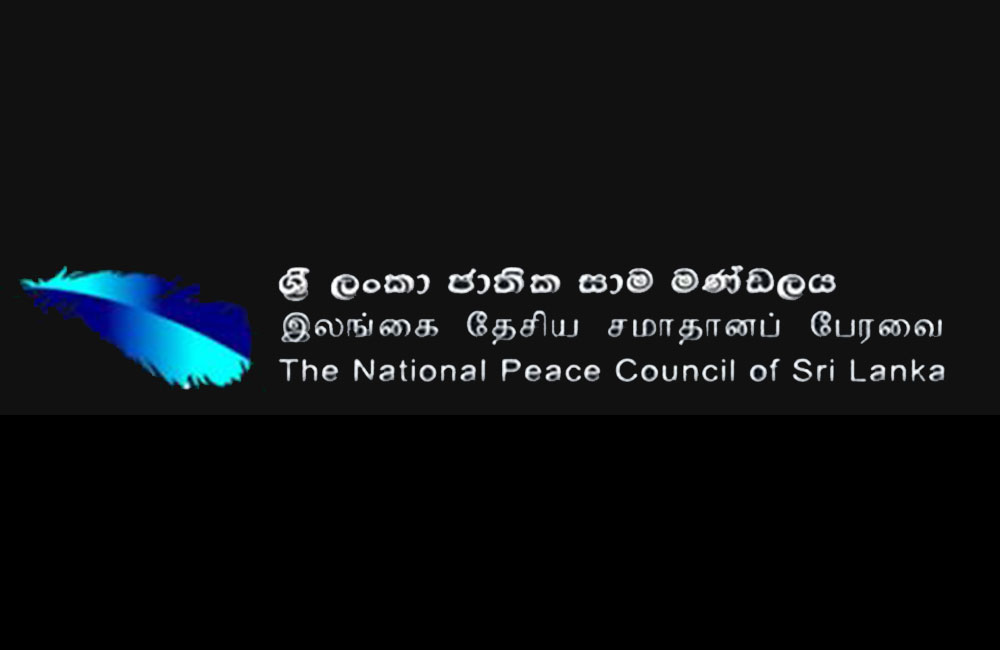
Prioritise just governance and solve national question: National Peace Council
The government needs to address the national question and provide a constitutional solution to i, the National Peace Council said in statement.The NPC said that they believe that the coming period will be the most decisive in Sri Lanka’s post-independence history in regard to finding a just and lasting solution to the ethnic conflict.
Full statement is as follows;
"The restoration of Prime Minister Ranil Wickremesinghe to his position as Prime Minister by President Maithripala Sirisena has brought to an end seven weeks of political crisis in which the country did not have a functioning government. As articulated by the Prime Minister himself, most of the people of this country joined together to protect the constitution, democracy, and the rights of the people. They joined this fight on behalf of their country and democracy without any personal gain. The National Peace Council wishes to appreciate the apex courts of the judiciary which proved their mettle and contributed immensely to bringing the political crisis to an end.
Prime Minister Wickremesinghe made it clear during the political crisis that providing a political solution to the national question and enshrining it in constitutional law is a priority for him. The TNA votes in parliament during the crisis provided the majority in parliament that was needed to show President Sirisena, and the country, that Mr Wickremesinghe was entitled to be appointed as prime minister. The TNA leadership has been criticized for being more concerned about the prime minister than about the Tamil people. In our view the TNA’s contribution to the preservation of democracy, to respect for the constitution and to the Rule of Law goes beyond the personal.
During the next year the government needs to address the national question and provide a constitutional solution to it. This would require a 2/3 majority in parliament and approval by the people at a referendum. The National Peace Council believes that the coming period will be the most decisive in Sri Lanka’s post-independence history in regard to finding a just and lasting solution to the ethnic conflict and that the support of President Sirisena would be important for this endeavor to be a success. This is likely to be the last available time period for the UNP and SLFP that worked together for the first time in history to continue to work together. It is through their collaboration that the most vexed and intractable of the country’s problems, its ethnic conflict that gave rise to nearly three decades of terror and war, might be resolved."
The National Peace Council is an independent and non partisan organization that works towards a negotiated political solution to the ethnic conflict in Sri Lanka. It has a vision of a peaceful and prosperous Sri Lanka in which the freedom, human rights and democratic rights of all the communities are respected. The policy of the National Peace Council is determined by its Governing Council of 20 members who are drawn from diverse walks of life and belong to all the main ethnic and religious communities in the country.
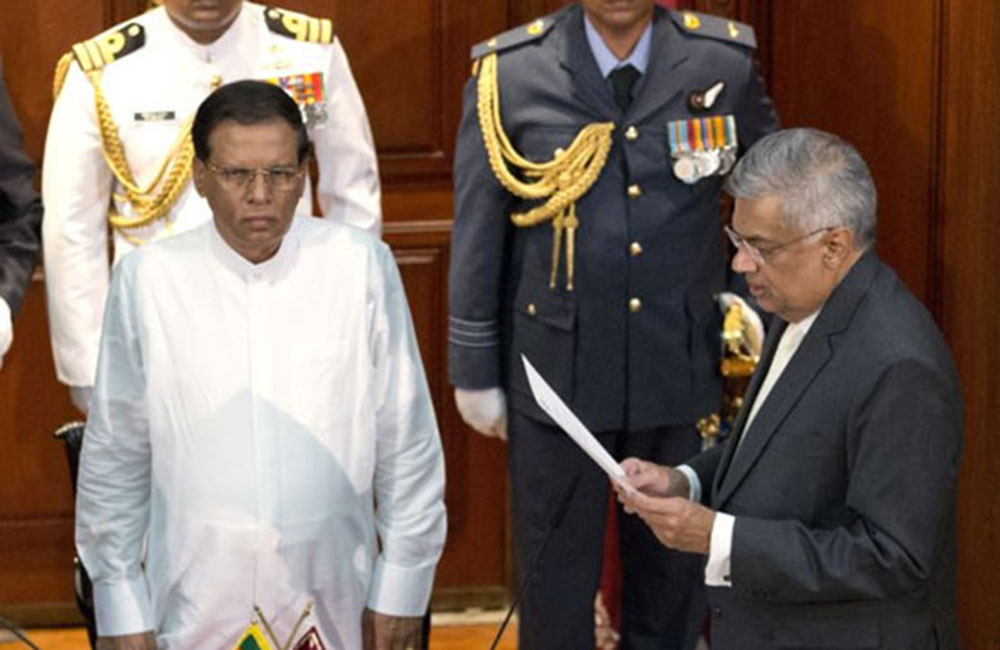
Sri Lanka reinstates ousted Prime Minister in stunning reversal
Sri Lanka Prime Minister Ranil Wickremesinghe has been reinstated by President Maithripala Sirisena, the man who sacked him two months ago and plunged the island nation into chaos.
Sirisena administered the oath that restored Wickremesinghe to office on Sunday.
"We thank the citizens of the country who fought the illegal seizure of power and ensured that Democracy was restored," Wickremesinghe's United National Party wrote in a post on Twitter shortly after he was sworn in.
In late October Sirisena dismissed the cabinet and replaced Wickremesinghe with former strongman President Mahinda Rajapaksa, who led the campaign to crush Tamil Tiger guerrillas in 2009. Rajapaksa stepped down from the post on Saturday.
The country's Supreme Court had ruled on Thursday that Sirisena's firing of the Prime Minister violated the constitution.
At the time of the sacking, Sirisena said he made the decision due to "political problems (and) economic troubles" which he believed only Rajapaksa could solve.
The decision created a constitutional crisis, with Wickremesinghe insisting he was still Prime Minister, leading to mass protests in the capital Colombo.
Sri Lanka's institutions had fought back in the wake of the President's decision, with Parliament passing a no-confidence motion in Rajapaksa in November and declaring his appointment "void and invalid."
Sirisena had attempted to dissolve Parliament to avoid the vote but the Supreme Court overturned that decision as well.The chaos has damaged Sri Lanka's economic standing, with Fitch Ratings downgrading it from 'B+' to 'B' in December due to the political upheaval.
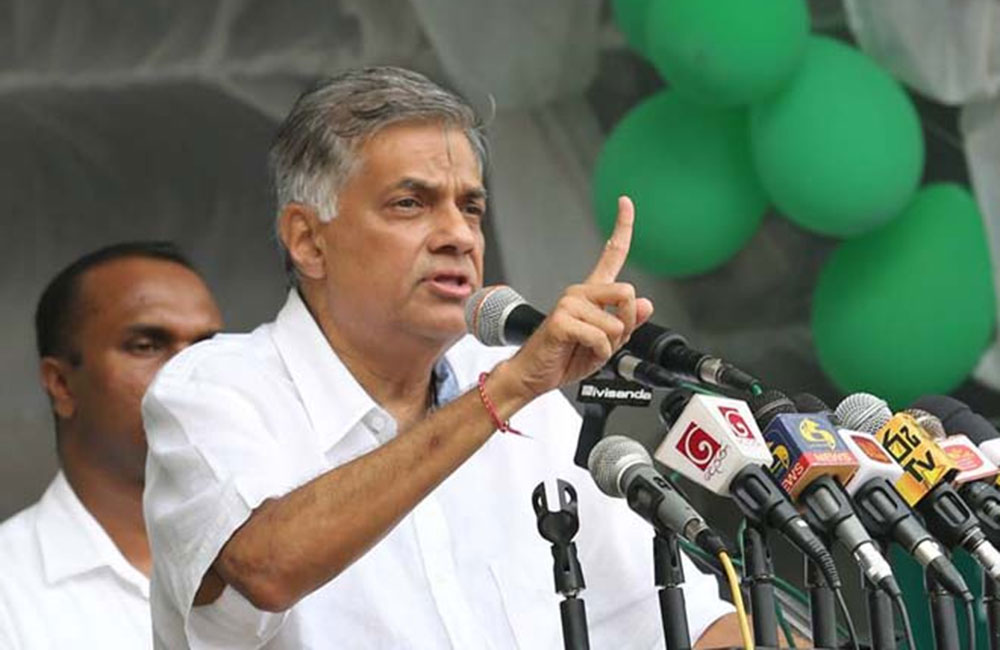
Premier Wickremesinghe promises a new political front
A new political party will be established that would unite all democratic elements in the country, Prime Minister Ranil Wickremesinghe said. The party will be named as the National democratic Front (NDF), he added.
The premier made these remarks at the 'Yukthiye Satana' rally currently being held at the Galle Face Green.
Thousands of supporters had thronged to Galle Face to celebrate the reestablishment of democracy in the country following the unconstitutional coup that happened in October.
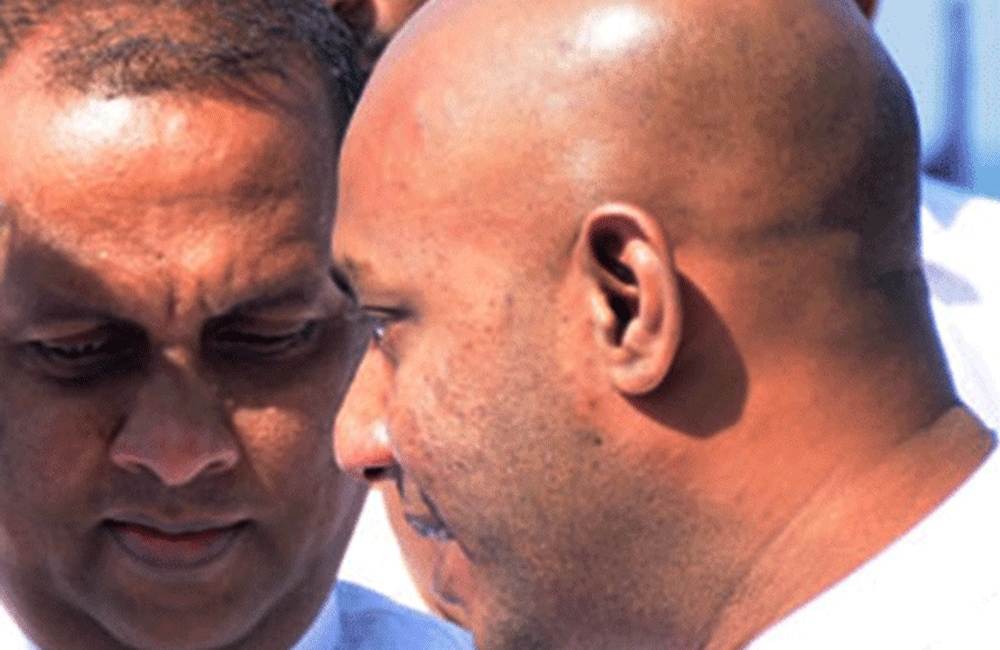
SLFP faction formed; Duminda named convener of 'Friends of January 08'
Certain parliamentarians representing the Sri Lanka Freedom Party have decided to form an internal faction within the party, informed political sources said.
Accordingly, SLFP MPs Mahinda Amaraweera, Duminda Dissanayake, Vijith Vijithamuni Soyza, Lasantha Alagiyawanna, Weerakumara Dissanayake, Faizer Mustapha, Dushmantha Mithrapala, Indika Bandaranayake, Lakshman Seneviratne, Kader Masthan, Sriyani Wijewickrema and a few others have grouped themselves together to form an alliance known as “Friends of January 08”.
Sources added that they will stand by the contours of the January 8 revolution and as such, will work towards protecting the promises made by the good governance regime prior to being elected in 2015.
The group have so far rejected offers to join Basil Rajapaksa’s Sri Lanka Podujana Peramuna (SLPP), sources added.
It is further reported that they have named SLFP MP Duminda Dissanayake as the convener of this faction.
They also said that a meeting of this faction was held at the residence of parliamentarian Mahinda Amaraweera yesterday (15), and had decided to function within the party while abiding by the policies and objectives of the SLFP.
However, it has not yet been decided whether this faction would join the new government that would be formed after the swearing-in ceremony of UNP leader Ranil Wickremesinghe, today (16).
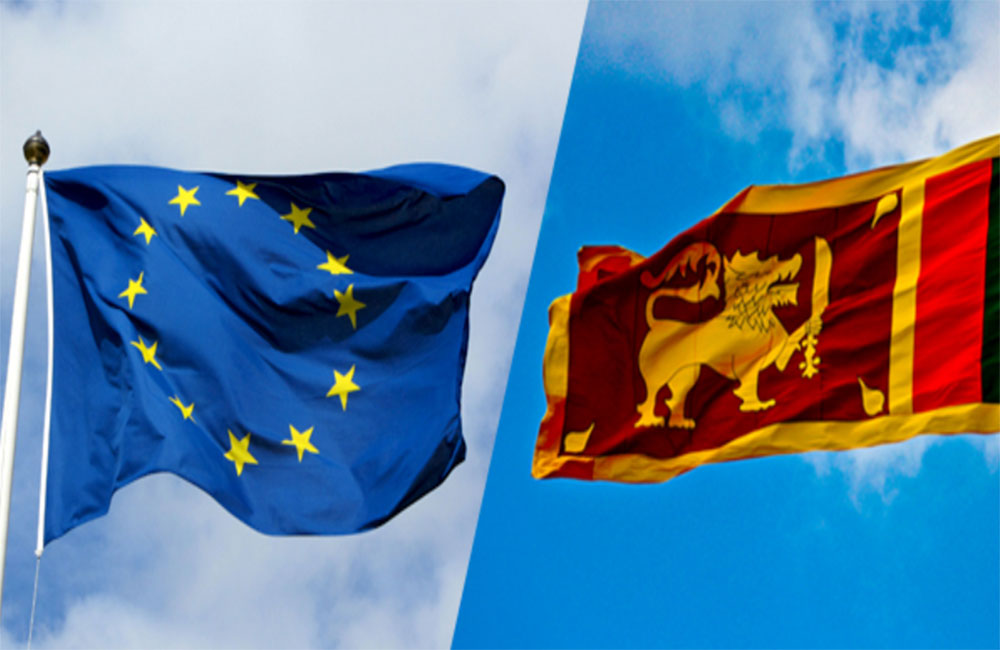
EU welcomes peaceful resolution of Sri Lanka’s political crisis
The European Union (EU) today welcomed the peaceful and democratic resolution of the political crisis in Sri Lanka.
“As steady friends of Sri Lanka, we welcome the peaceful and democratic resolution of the political crisis in accordance with the constitution,” the EU delegation in Sri Lanka said in a statement in agreement with the EU Ambassadors and the Norwegian Ambassador resident in Colombo.
“We commend the resilience of Sri Lanka's democratic institutions and will continue to support its efforts towards national reconciliation and prosperity for all,' the joint statement said.
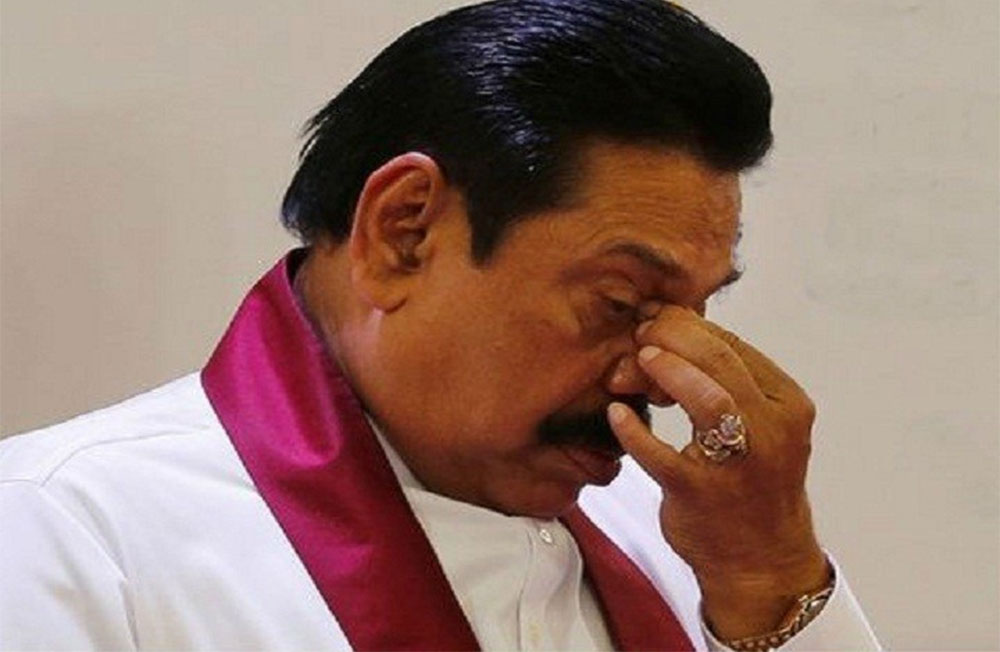
Sirisena asked Mahinda to leave!
Presidential Secretariat sources claim MP Mahinda Rajapaksa was asked to resign by President Maithripala Sirisena and did not leave on his own accord as being claimed.
According to the source despite several claims of being able to secure a majority in parliament by the MR faction they were unable to do so and therefore President Sirisena asked him to vacate the post to prevent a further unstable situation and so that a new PM could be appointed.
The source also refuted MP Lakshman Yapa Abeywardhena’s claim that Rajapaksa resigned as Sirisena was not able to appoint a new PM while he remains in the position. “This does not allow the honour of creating stability in the country be accorded to the President,” the source said.

Facebook fuels ‘yellow vest’ protest movement in France
With names like “Angry Drivers of Normandy,” Facebook groups are the nerve center of the “yellow vest” protest movement raging across France — and increasingly, a breeding ground for fake news.
When Facebook’s CEO Mark Zuckerberg announced in January that the social media giant was going to start prioritizing local news, little did he know it would end up feeding the worst crisis of Emmanuel Macron’s presidency. Internet experts say changes to Facebook’s algorithms have helped “anger groups” like the one in Normandy swell to tens of thousands of members — and last month, they spilled onto the streets.
Nov. 17 marked the start of nationwide road blockades against rising fuel prices, which have since ballooned into a mass movement against rising living costs and Macron in general. With thousands of posts railing against everyone from the president to a shadowy global financial cabal, the groups reflect the leaderless nature of the yellow vests, who subscribe to a variety of different goals.
What’s clear is that the groups have been crucial in mobilizing protesters, who mainly hail from small-town and rural France. “We use Facebook for absolutely everything — informing ourselves, organizing ourselves,” said Chloe Tissier, a moderator of the “Angry Drivers of Normandy” group, which has more than 50,000 members. “When a barricade is going up and we don’t have enough pallets to set on fire, or food, we put out a post and someone comes to bring them. Doing this by phone would be impossible,” she said. Facebook is also “great because older people are there, too,” she added. Pensioners, angry that their allowances are being squeezed, make up a sizeable chunk of the movement.
“The yellow vests are not at all a structured movement — there’s no spokesman, it’s decentralized. So Facebook is ideal for them,” said Tristan Mendes France, who teaches digital culture at Paris-Diderot University.
The change in Facebook’s algorithms earlier this year lowered the visibility of content published on pages run by large media outlets, he explained. “It prioritized content being shared by groups, individual profiles, and local information. This change in the algorithm has boosted the emergence of this movement,” he said.
This is far from the first time anger fueled by social media has spilled onto the streets, the 2011 Arab Spring being a prime example. Sri Lanka temporarily banned Facebook this year after a wave of hate speech posted on the website helped to spark deadly anti-Muslim riots.
Olivier Ertzscheid, a researcher at the University of Nantes, noted that angry content in particular flourishes on Facebook. “The sentiments which spread most effectively on the platform are those that highlight indignation and anger,” he told AFP. “Facebook offers the technical architecture for spreading information which is perfectly adapted for that.”
A deep vein of anti-elite anger and suspicion of the mainstream media runs through the “yellow vest” Facebook groups — comments not unlike those heard among U.S. President Donald Trump’s voters on the other side of the Atlantic. “Politicians are fake, the media are fake,” reads the “About” section of the “Citizens in Anger” group, which counts 16,000 members. Yet the “yellow vests” comprise voters of various political stripes, including those who back both the far left and far right in France.
Vesters share false rumors
As seen during the U.S. presidential election, though, false rumors have spread like wildfire among yellow vest supporters active on Facebook. Posts raising alarm that France is about to sign its sovereignty away through a United Nations migration pact have racked up hundreds of thousands of views and shares. Other viral posts purporting to show police violence against yellow vests use photographs of bloodied protesters taken years ago.
“We try as much as possible to sort through what we publish,” said Tissier of the “Angry Drivers of Normandy” group. But with hundreds of posts an hour, the volunteers moderating such groups struggle to keep up.
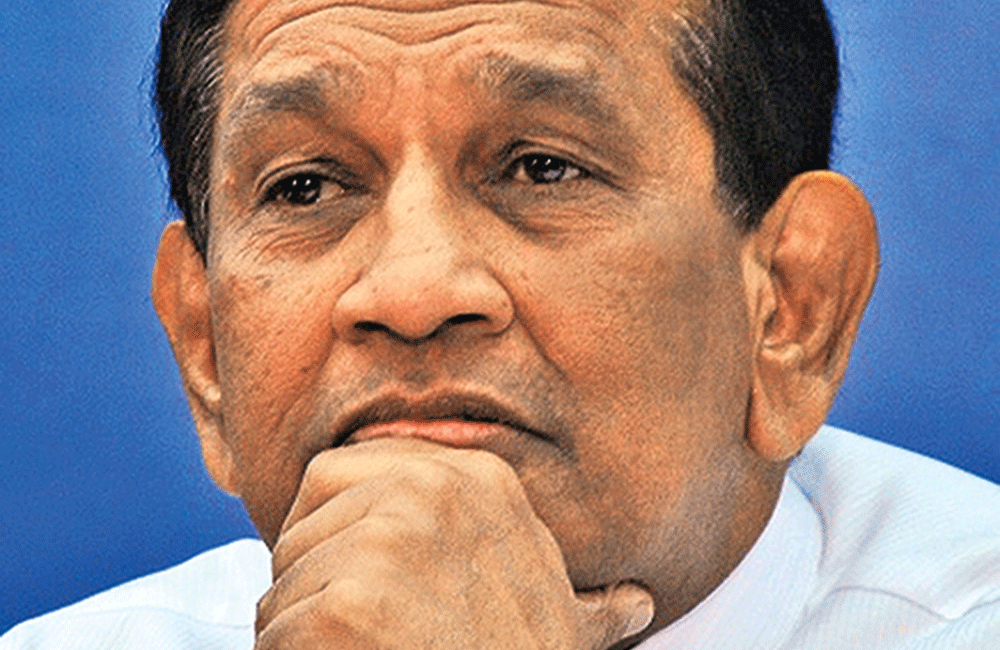
GMOA back to its old antics; threatens State with strikes
The Government Medical Officers Association which maintained a stoic silence during the political coup in Sri Lanka as now once again threatened to launch a series of strike actions of Former Minister of Health Dr. Rajitha Senaratne is once against appointed to his previous position.
According to the GMOA, the decision will lead to a crisis situation in the health sector. The comments were made by Secretary of the GMOA Dr Nalinda Herath at a press conference held this week. He claimed the health sector suffered major setbacks at the hands of Senaratne. The group and the former Minister were at constant loggerheads during his tenure leading to the GMOA to conduct strikes thereby adversely affecting a general public on several occasions.
Page 372 of 532